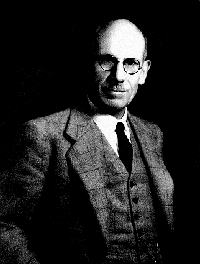Lawrence Henry Gipson
 Lawrence Henry Gipson was an American historian, who won the 1950 Bancroft Prize and the 1962 Pulitzer Prize for History for volumes of his magnum opus, the fifteen-volume history of The British Empire Before the American Revolution, published 1936–70. He was a leader of the "Imperial school" of historians who studied the British Empire from the perspective of London, and generally praised the administrative efficiency and political fairness of the Empire.
Lawrence Henry Gipson was an American historian, who won the 1950 Bancroft Prize and the 1962 Pulitzer Prize for History for volumes of his magnum opus, the fifteen-volume history of The British Empire Before the American Revolution, published 1936–70. He was a leader of the "Imperial school" of historians who studied the British Empire from the perspective of London, and generally praised the administrative efficiency and political fairness of the Empire.
In 1924, Gipson was appointed professor of history at Lehigh University, a position he held until his death. Although best known as a historian of Colonial America and its place in the British Empire, two of Gipson's earliest articles had to do with the Civil War and Reconstruction. His assessment of Andrew Johnson ("The Statesmanship of President Johnson: A Study of the Presidential Reconstruction Policy") was published in the Mississippi Valley Historical Review in December 1915; and "The Collapse of the Confederacy" appeared in the Mississippi Valley Historical Review in March 1918. His Yale doctoral dissertation, which was written under the guidance of Charles M. Andrews, was accepted in 1918 and published two years later by Yale University Press as Jared Ingersoll: A Study of American Loyalism in Relation to British Colonial Government (1920), for which he received the Justin Winsor Prize from the American Historical Association. He contributed seven entries to the Dictionary of American Biography, and three articles to the Dictionary of American History.
